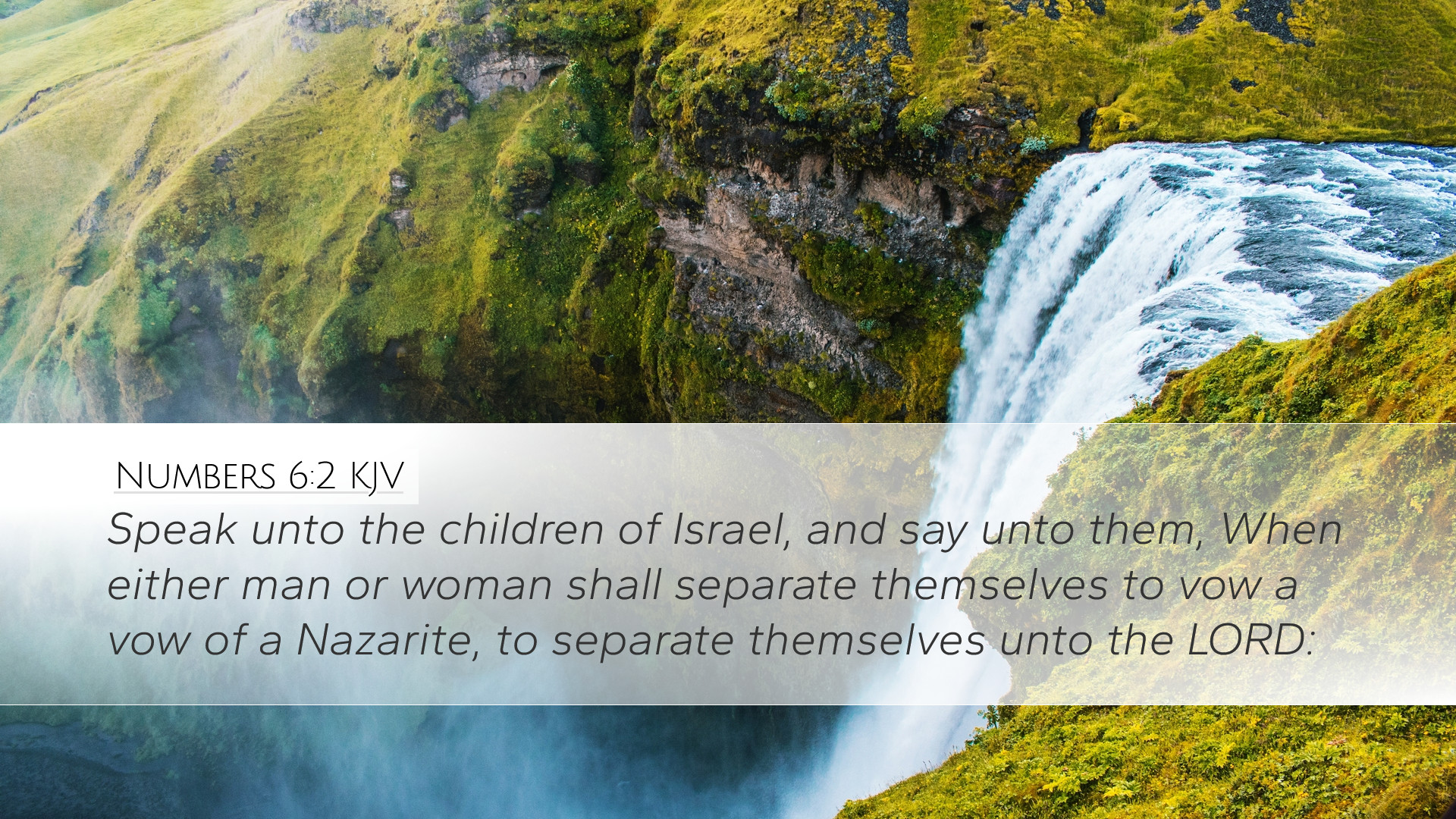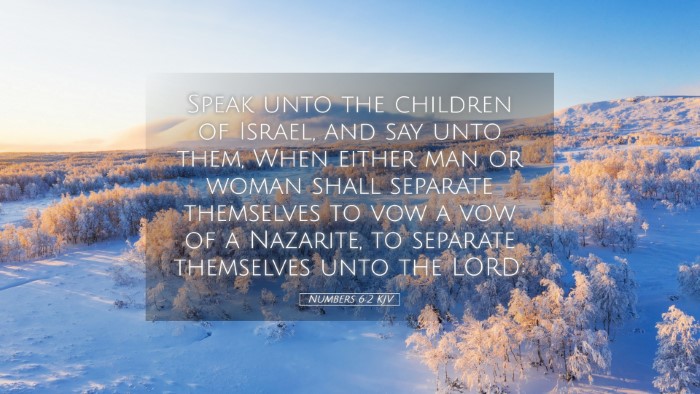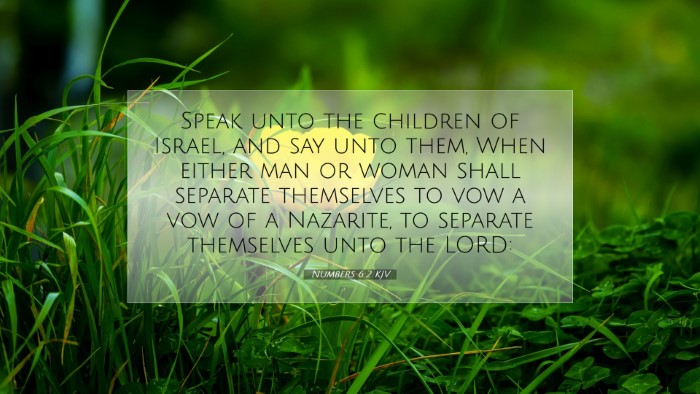Commentary on Numbers 6:2
Verse: "Speak unto the children of Israel, and say unto them, When either man or woman shall separate themselves to vow a vow of a Nazarite, to separate themselves unto the Lord."
Introduction
Numbers 6:2 introduces the ordinance of the Nazarite vow, a significant aspect of Israelite spirituality and identity. This commentary draws insights from several public domain sources, highlighting its theological, historical, and practical implications for contemporary faith practice.
The Nazarite Vow Explained
The term 'Nazarite' stems from the Hebrew word nazir, meaning "to separate" or "to consecrate." This vow was an expression of profound devotion to God, marked by specific stipulations regarding consumption, grooming, and contact with the dead.
Call to Separation
The command to "separate themselves" indicates an essential element of the Nazarite vow: the desire to be set apart for God's service. As Matthew Henry notes, this separation was not merely physical but also spiritual, signifying a deeper commitment to living a life dedicated to the Lord’s purpose.
Inclusivity of the Vow
Notably, the vow can be undertaken by both men and women, underscoring the egalitarian aspect of God’s calling. According to Albert Barnes, this inclusion signifies that all members of the community, regardless of gender, can aspire to deeper spiritual engagement. This practice reflects God's desire for all His people to pursue holiness.
Purpose of the Nazarite Vow
The vow serves multiple purposes, each with profound theological implications:
- Devotion to God: The vow signifies an earnest desire to grow closer to God while setting aside distractions of daily life.
- Symbol of Commitment: The rigorous standards encouraged individuals to commit themselves bodily and spiritually, embodying the essence of faith through tangible actions.
- Community Witness: As individuals took vows publicly, it served as a testament to others of what true devotion looked like, promoting a culture of holiness within Israel.
Historical Context
The setting of the Book of Numbers—a time of wilderness wanderings—provided a backdrop for that vow. Adam Clarke highlights that during this period, Israel faced numerous challenges, making the need for dedicated individuals to intercede and lead in devotion crucial. Vows like that of the Nazarite could inspire hope and illustrate reliance on God during trials.
Theological Implications
The vow carries rich theological insights:
- Holiness of God: By calling for separation, the vow emphasizes God’s holiness and the need for His people to live in a manner that reflects that holiness.
- Personal Responsibility: The personal nature of the vow emphasizes individual responsibility in a community context. Each person contributes to the spiritual health of the nation.
- Foreshadowing Christ: Some theologians assert that the Nazarite vow foreshadows the ultimate separation of Christ, who was consecrated and set apart for the redemptive work of salvation.
Application for Today
Reflecting on Numbers 6:2 is particularly pertinent for pastors, students, and scholars aiming to cultivate a life of devotion:
- Contemplation: Encourage spiritual disciplines that involve separation from worldly distractions, promoting a closer walk with the Lord.
- Intentional Living: Consider how personal commitments to God can manifest in daily life. The Nazarite vow invites believers to think critically about their own spiritual journeys.
- Community Impact: Foster environments that support and celebrate spiritual commitments, allowing individuals to witness and encourage one another in their faith journeys.
Conclusion
In summary, Numbers 6:2 serves as a call to a deeper relationship with God, one marked by intentionality and separation for His purposes. By examining the insights of respected commentators and engaging with the text, modern believers can embrace the spirit of the Nazarite vow in their lives today.


